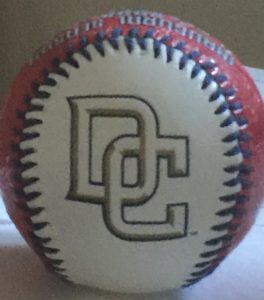September 28, 1941
The end of the regular season is always bittersweet. In years like this, more bitter than sweet. But, looking back, there is a particular poignancy to the end of the 1941 season.
First, it was a tremendous season, perhaps the best in baseball history, featuring DiMaggio’s streak, Williams’ .400 season and the Dodgers’ first pennant. And, of course, it ended only weeks before Pearl Harbor.
The attention of the baseball world was focused elsewhere on September 28th. The Yankees had clinched the pennant way back on September 5th so they weren’t the big story. Instead, the New York Times headlined its sports page on September 29th: “Dodgers End Season With 100 Victories; Batting Mark of .4057 for Williams.” Even the Washington Post had moved on. Its lead stories on the 29th were the upcoming Lou Nova – Joe Louis heavyweight title bout and the Redskins’ 17-10 loss to the Giants. (Remember: the Redskins had played in the 1940 NFL championship game, losing 73-0).
And the attention of the world was elsewhere as well. On September 28th, the Times reported Nazi claims to have captured over 600,000 Soviet soldiers in the battle for Kiev. At home, new excise taxes for defense were due to take effect on all “luxury” goods and services, including a ten per cent tax on baseballs, bats, and catchers’ masks.
Nevertheless, the game had its points of interest. There was a bit of symmetry at play. The Nats had been shutout in their first game of the season by the Yankees back on April 14th when Marius Russo tossed a 3 hitter. Now, on the last day of the season, the Senators returned the favor with a 4-hit, complete game shutout pitched by Sid Hudson. Hudson and Cecil Travis were the Senators’ only All-Stars in 1941. Travis doubled, walked and scored on Ted Williams’ 4th inning double in the midsummer classic. But Hudson was less successful, surrendering a two run homer to Enos Slaughter in his 7th inning appearance. But after the break, Hudson was an excellent pitcher for the Nats, compiling an 8-6 record with a 2.98 ERA.
In fact, the team had a strong September, with a 16-11 record going into the final day of the season. And it was a satisfying last day. Hudson was dominant, retiring the first eleven batters he faced. Then, in the bottom of the fourth, he allowed a single by Tommy Henrich, followed by a DiMaggio double. But Hudson got Charlie Keller to fly out to center fielder Doc Cramer to end the inning. In the eighth, Sid let up back to back singles by Joe Gordon and Phil Rizzuto but escaped damage when he struck out Norm Branch and got Johnny Sturm to line out to Buddy Lewis in right.
Yankee manager Joe McCarthy bullpenned the game, allowing Marv Breuer, Charley Stanceu and Norm Branch three innings of work each. The Nats tallied all their runs against Stanceu. Hudson helped himself by driving in the first run in the fifth with a ground rule double. Mickey Vernon collected two RBIs with a double in the next frame, raising his season total to 93. Cecil Travis went one for four, to end the season with a .359 average.
The New York papers, looking for a silver lining, noted that the Yankees had tied the single season record for double plays with their 194th in the second inning. According to the Times:
One was out, Hudson was at second and George Case at first when Doc Cramer hoisted a high fly to Henrich in short right. Ever mindful of the record, Tommy trapped the ball and tossed it quickly to Rizzuto, who touched Hudson and the oncoming Chase. If Phil had had his way, he would have touched everyone in sight, including Gordon.
The game ended when Hudson struck out DiMaggio in the bottom of the ninth. It was the Yankee Clippers’ 13th strikeout of the season. And it gave Travis second place in the AL batting race. The win also secured the Nats a tie for sixth in the league.
And it was the end of an era. Of the eighteen players who started this game, 14 would lose at least one season to wartime military service. Among them were three Nats who would be in a military uniform in 1942: Hillis Lane, Buddy Lewis and Cecil Travis.






